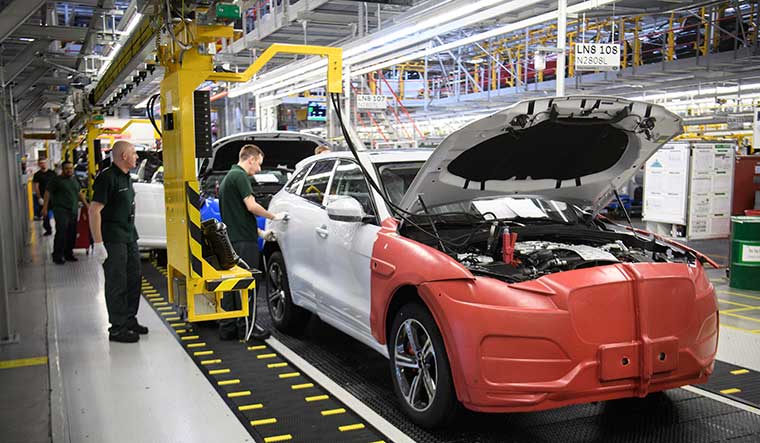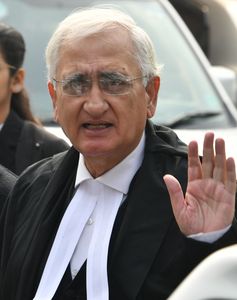A remarkable transformation is taking place in the UK. It chose to exit the EU and regain its sovereignty, but has had a difficult time securing post-Brexit arrangements with erstwhile companions. There is much that the EU and the UK need to work together on, including the services sector and education. Meanwhile, the Brexit hero, Prime Minister Boris Johnson, played one card too many to deal himself out of office and the Conservative Party leadership. Interestingly, in the leadership race to succeed him there were several Asian and Arab candidates. Rishi Sunak held his place at the top in the rounds of voting by MPs, ahead of Liz Truss, the foreign secretary.
There is speculation if he will finally triumph among Conservative voters in the electoral college. But the cracks in the glass ceiling are apparent. The 1.6 million diaspora (including the 6.06 lakh born in the UK) is excited, but so are people in India. Curiously, the Labour Party, too, is keeping pace on political leadership, although it has a longer history with India. People might argue about how Indian Sunak remains as he underscores his British identity. Whether a person of Indian origin as head of government in a western democracy would be careful and self-conscious about India remains a moot question, but, to an extent, we would not be wrong to expect some qualitative difference as more overseas Indians occupy important public positions.
Other than the visible ethnic characteristics of the emerging leadership of the UK, the aftermath of Brexit has sent both India and the UK to the drawing board over future economic relationship. Interestingly, there is the historical connectivity of a shared educational system and links to the Commonwealth that can emerge out of the shadows of the EU years of the UK. The top UK universities still attract the top talent from India and can now boast of impressive participation in faculty tenures.
English has always been a special dimension of our relations with the UK, giving Indians a unique advantage. Any traveller to the UK can experience the impact of the mainstreaming and popularity of Indian culture and appreciation of Indian cuisine, cinema, languages, religion, philosophy and performing arts. The Nehru Centre stands out as the representative stamp of multi-cultural social landscape of modern day Britain.
The big ticket for the UK-India relationship in contemporary times is trade and investment. The 2030 road map under the Comprehensive Strategic Partnership 2021 flags the ambitious commitments we have made to each other. The UK is diligently pursuing negotiations for a trade deal, expected to be closed in a matter of months. By the third round, the two sides have had 32 sessions of negotiations, looking at 26 policy areas. It goes without saying that ease of doing business remains a concern that the UK pointed out.
India is already the second largest foreign investor in the UK, and the UK ranks 18th as a trading partner of India and third after Mauritius and Singapore as an investor. Several bilateral trade agreements between the two nations are in place. The Joint Economic and Trade Committee (JETCO) has been active in boosting two-way bilateral investments. According to figures available for 2019, Indian companies in the UK generated over £48 billion, employing more than one lakh people. The Tata Group alone employs over 63,760 employees for the iconic Jaguar and Land Rover cars manufactured at Castle Bromwich and Whitley; the cars are exported to India as well. To mark 70 years of India’s independence in 2017, the then foreign secretary Boris Johnson said, “We in the UK are the beneficiaries of reverse colonialism and ‘commercial role reversal’ between the two countries.”
Also read
- Rishi Sunak to assume office as UK PM today, calls for 'unity'
- 'Groundbreaking,' Biden on Rishi Sunak's election as UK PM
- Rishi Sunak becomes first Indian-origin UK PM
- Rishi Sunak could be the new UK PM as Boris Johnson exits race
- Rishi Sunak emerges favourite to be the next UK PM; Mordaunt too in the running
- UK: Boris Johnson's successor to be named today, Truss ahead of Sunak
India being one of the “fastest growing economies in the world” and the vast shared values and experience of working with the UK make it a priority target country to fill the Brexit gap. Compared with the 2010 trade mission, the UK and India negotiated to double the trade volume by 2015. Following the trade delegation, total UK goods and services exports to India increased by 14 per cent from January to September 2013. With the support of the UK-India Business Council, the governments announced the Access India programme, set up to help UK SMEs export to India. While many large UK companies have a presence in India, small and medium-sized British companies are yet to find root. India naturally hopes that the Access India programme will not only encourage British SMEs to export to India, but also inspire them to establish manufacturing bases in India, at least through collaborations.
Even as we cruise comfortably in a mutually rewarding relationship, the emerging world order as a consequence of the Russian military operation in Ukraine and the adversarial positions taken by western countries, particularly the UK, is bound to impose constraints. Interestingly, the UK’s conscious outreach to China, too, might be affected by its recent policy postures. As the US shifts its focus to the Indo-Pacific, the UK, too, will align its position with countries like India. There is much to be done and the AUKUS (Australia-UK-US) agreement is the cause of some scepticism, while QUAD (Quadrilateral security dialogue between Australia, India, Japan and the US) has greater resonance. The UK’s absence here is conspicuous. But these lanes all lead to firm positions on China and there India might well find it difficult to fall in line strictly.
Unfortunately, China has not reciprocated the patience and perseverance in relations India has kept up despite serious disappointments. But we have to support the consensus on maritime security in the Indo-Pacific on which the UK now has a conspicuous tilt. For the present we can be comfortable, but Russia and China remain the elephant in the room. The romance of Passage to India will have to be balanced with pragmatic commitments in the neighbourhood.
—The writer is former external affairs minister.



